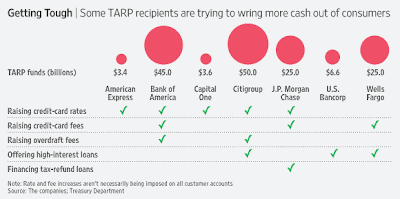
Though it is known primarily to film historians and art house cinephiles these days, Swedish director Vilgot Sjöman's controversial
I Am Curious was the United States' top grossing foreign film from its 1967 opening until the late 1990's. Taking in over twenty million dollars at the box office, its success is often explained by way of its then-shocking graphic sex scenes. A modern audience has come to expect and desire nudity in feature films and the obligatory cottage industry to perpetuate that craving has sprung up around it. There was a time, however, in the not-that-long-ago past where nudity in film was meant to make a statement. Unsurprisingly, today's viewers won't find much in
I Am Curious tremendously shocking, though even today full-frontal male nudity and unsimulated oral sex are still largely forbidden in Hollywood. Over forty years after its release, the movie retains an NC-17 rating as a result of this.
Specifically because of the sex, the master print of the film was seized by U.S. Customs Agents the moment it reached American shores. A protracted obscenity trial resulted between the film distributors and the U.S. Government, which was eventually taken all the way to the Supreme Court. The High Court ruled affirmed the decision of the prior Circuit Court which ruled that it was not obscene, and decreed that it could be shown in all states that had not taken a hard stance against its viewing. Only Maryland's Board of Censors dug in their heels and refused under any circumstances to allow it to be shown in their state. The other 49 states in the Union, however, registered no objections. The amount of media attention the film received for nearly a year before it was finally shown before an audience created a publicity sensation the film distributors could have never dreamed of producing themselves.
The irony, of course, was that most casual viewers decided to attend a showing specifically for the sex, completely disregarding the political, social, and moral commentary that comprised the other 80% of the film. The author Upton Sinclair, a committed socialist, experienced the same phenomenon upon publication of his famous book
The Jungle. "I aimed for America's heart," he lamented, "but instead hit it in the stomach." Without meaning to, Sjöman's film made pornographic movies briefly quite popular with the average moviegoer, coalescing in the success of the famous XXX feature
Deep Throat. The unexpected success of
I Am Curious drove many art house cinemas out of the business of showing foreign language or experimental film. Many were forced to switch completely to XXX pornographic films to stay afloat. This meant that, quite unjustly, many worthy art house and foreign films went completely unnoticed by audiences for several years.
I Am Curious was broken down into two separate films: one yellow, one blue. Yellow and blue are the colors of the Swedish flag. Both have dated considerably over the years. They are quite indicative of the prevailing winds of the decade of their creation---by turns daring, self-indulgent, wildly experimental, needlessly undisciplined, engaging, graphic, unrestrained, and completely unfocused. The audience is rarely provided enough exposition and linear transition between passages to produce a desperately needed kind of narrative cohesion. As it is, the films could be considered without much of a plot or an anchor and the final result is perplexing and occasionally dull. The director, looking like either a beat poet or an Amish bible salesman, inserts himself periodically into the action but even his presence doesn't overcome the movie's tragic flaws. Sjöman was himself a disciple of fellow Swede Ingmar Bergman, but lacked his idol's talent and command of the discipline, which produced an amateurish, sloppy product.
Sjöman's desire in making the movie was ostensibly to blur the lines between fantasy and reality. Believing that the more orthodox approach was constraining and furthermore wishing to embrace the impulse of the moment rather than the usual obsessive pre-planning, he allowed his actors and actresses to freely improvise and instead of giving much in the way of direction, primarily sat back and let the cameras roll. Filming got underway without a shooting script, or much of an idea where the picture was heading. It shows. Some sequences are presented in conventional fashion, the familiar cinematic conceit of actors and actresses playing a part, performing them in front of a camera. Other sequences attempt to show the back story behind the making of the film itself---the players as human beings with real feelings and emotions, merely working a job. Nowadays, this kind of film-within-a-film dynamic has been utilized so many times that it borders on cliche. In its time, however,
I Am Curious was one of the first to attempt to combine the genres of documentary with feature film.
























